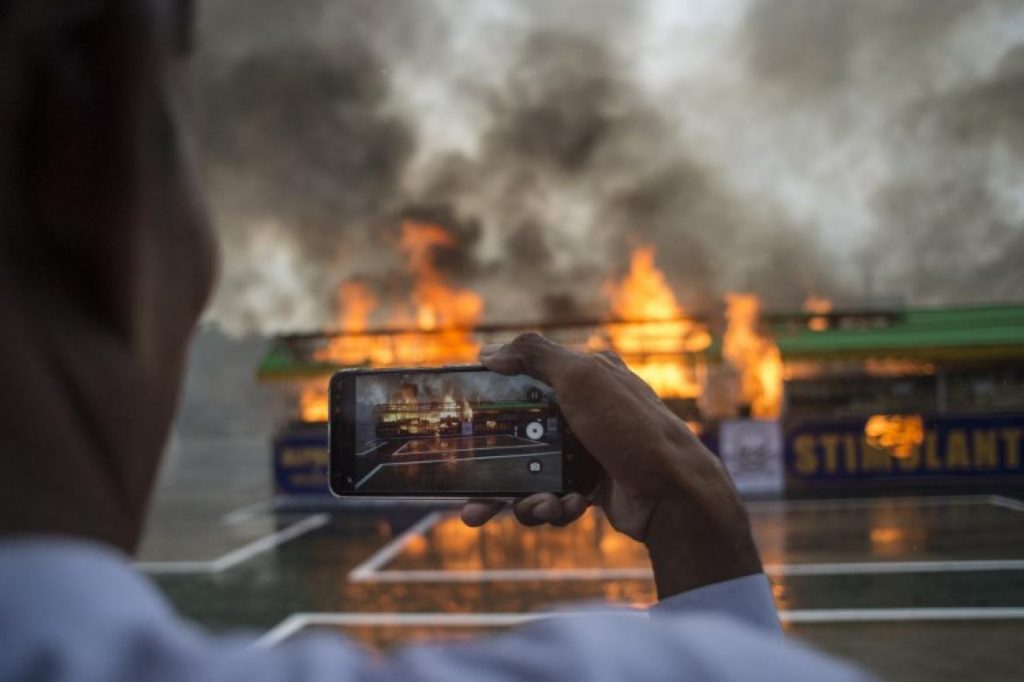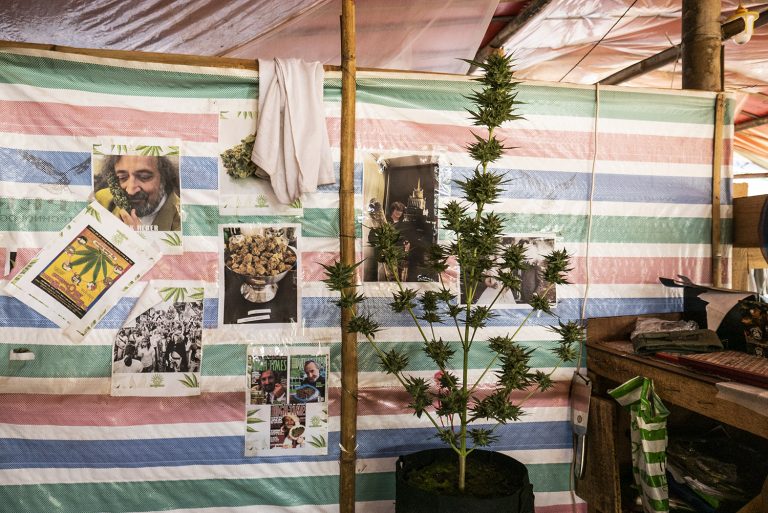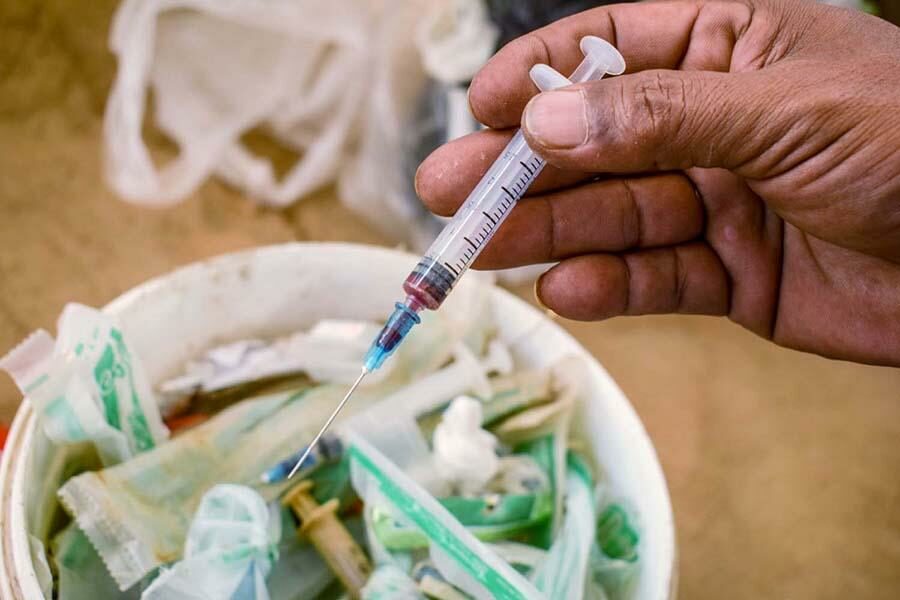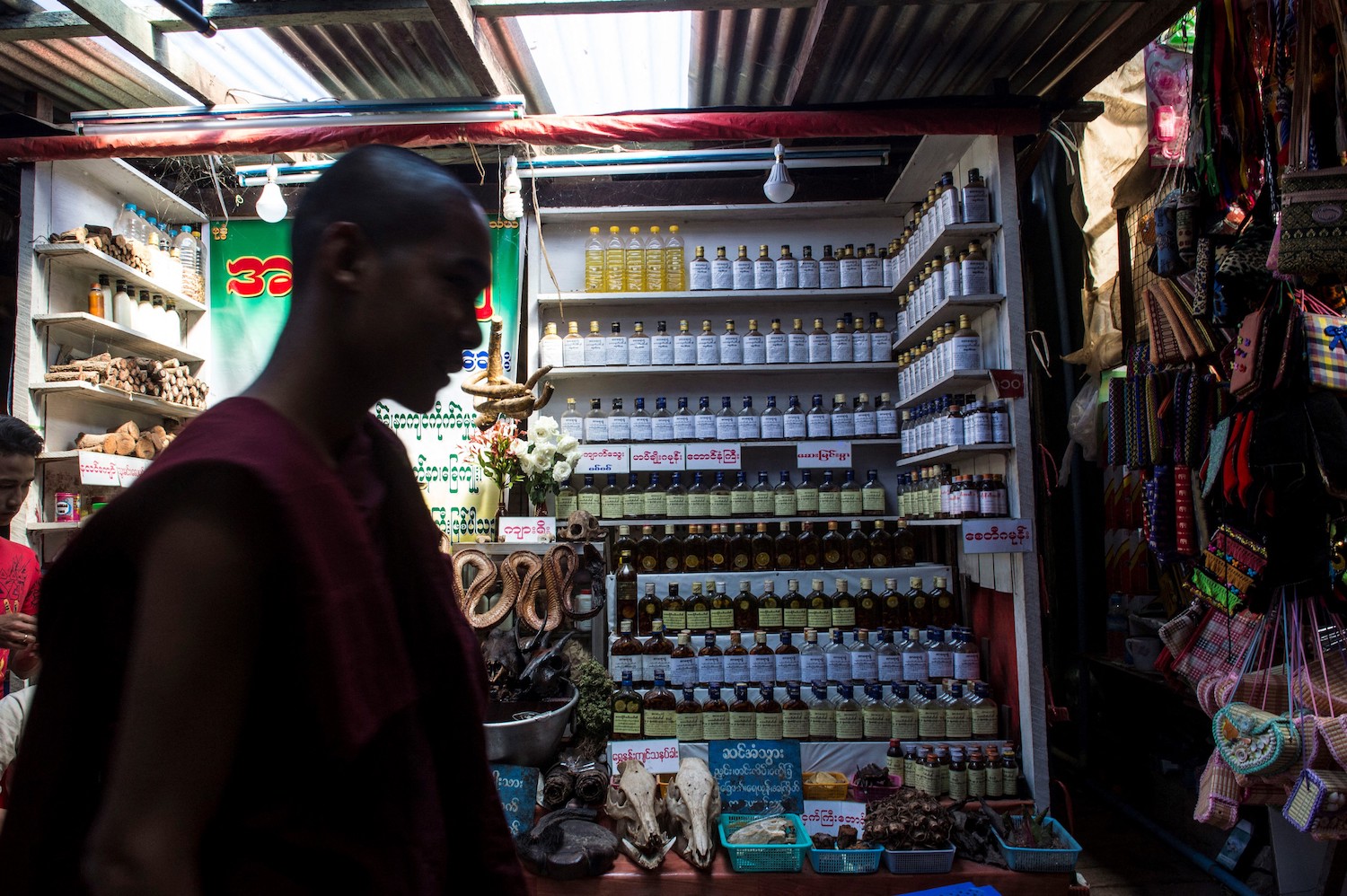By CLARE HAMMOND | FRONTIER
YANGON — President U Win Myint has formed an anti-narcotics taskforce that will report to the President’s Office and offer rewards for information on drug abuse and trafficking.
Win Myint announced the creation of the taskforce last week on the International Day against Drug Abuse and Illicit Trafficking, after the United Nations warned earlier this year that the production of synthetic drugs in Myanmar had reached “alarming levels”.
An announcement in state media yesterday said the Drug Abuse Reporting Department was formed on June 22 under Executive Order 187/2018. It encouraged the public to “provide information relating to the abuse of narcotic drugs and psychotropic substances, without fear of repercussions or threat to personal safety”. A related announcement said a reward would be offered to individuals who “provide information or assist in apprehending drug abuse, production and trafficking cases.”
State Counsellor’s Office director general U Zaw Htay told media last week that the department will be led by the permanent secretary of the President’s Office. It will present the information it receives to the president, who will refer cases to a special taskforce at the Central Executive Committee, which has the power to act on the information provided.
Support more independent journalism like this. Sign up to be a Frontier member.
Zaw Htay said the number of staff in the department has been “carefully limited” to ensure that information remains confidential. “The department will include just a few officials because we are worried that news might otherwise leak out,” he said, adding that the department has no mandate to answer questions from the media on its activities.
The value of materials seized as a result of information provided would be split between informers, the police and the government, Zaw Htay said. He estimated informers would receive 10 percent, police would take 20 percent and the other 70 percent would be paid to the government. “Once [a seizure] has been valued, the state will make a temporary payment to the informer and those who made the arrests,” he said.
He did not explain how the government intended to monetise seized assets, but referenced the June arrest of U Maung Maung, who is accused of shipping almost 1.2 tonnes of crystal meth to Malaysia. During a raid on his house last month, police confiscated his property. “He was not able to prove a legal source of income for his houses, land lots and cars, so they were nationalised,” Zaw Htay said.
Details of the reward scheme would be finalised following discussions with the Ministry of Home Affairs, he added, and written into the Narcotic Drugs and Psychotropic Substances Law by-laws.
In February, Myanmar published the first reforms to its legal framework on drugs in decades: an amendment to the 1993 law and a National Drug Control Policy, which was developed with support from the United Nations Office on Drugs and Crime.
UNODC regional representative Mr Jeremy Douglas told Frontier that it was unclear from the executive order and related statement whether the new taskforce would focus solely on trafficking and production cases, or whether it would also act on information about drug abusers.
“The devil is in the details and this will need to be clarified, because if it is used inappropriately to harass drug users, it would appear to contradict the national drug policy, which talks about diversion to treatment,” he said.
He said the use of funds to reward informers could become “problematic” due to risks around transparency and oversight. “There have been several instances around the world where asset seizure and reward programs have turned into slush funds and been associated with corruption,” he said, adding that the legal process for seizing assets and prosecuting alleged criminals should be fair and robust.
In May, as regional anti-drug authorities from the Mekong region met in Nay Pyi Taw, the UNODC said that a fresh approach to regional policing and cooperation was necessary to combat the sharp rise in methamphetamine production, particularly within Myanmar.
Methamphetamine seizures in Cambodia, China, Lao, Myanmar, Thailand and Vietnam have risen almost seven-fold since 2008. The majority of these trace back to northern Shan State and specifically to the Wa autonomous region, Douglas previously told Frontier.
Last year, some 450 million low-grade “yaba” pills were seized in the region, he said, which he estimates is a low-single digit fraction of the total volume produced.
Win Myint in his speech last week said the new National Drug Control Policy would encompass all aspects of the industry, including supply reduction, alternative development, demand reduction, international cooperation, research and respect for human rights.







